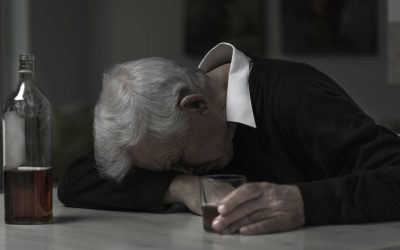Possible effect of the ingestion of alcohol on allergic rhinitis
One primary cause relates to histamines, naturally present in many alcoholic beverages, particularly red wine, beer, and aged liquors due to their fermentation and aging processes. Alcohol also inhibits the activity of diamine oxidase (DAO), an enzyme responsible for breaking down histamine in the gut, leading to an accumulation of histamine in the body. This buildup can trigger allergy-like symptoms, including sneezing, nasal congestion, and flushing. Another common symptom you may experience is a stuffy nose or nasal congestion.
White Wine Makes Me Sneeze
- This article provides clarity by explaining the key differences between alcohol intolerance and alcohol allergy.
- Those who notice an increase in their asthma symptoms after drinking alcoholic beverages, especially wine, might be reacting to potassium metabisulfite, a common preservative.
- When you stop drinking, your body has to work extra hard to produce these chemicals again, which leaves you feeling drained.
- It occurs when your body has difficulty metabolizing the histamines found in certain foods and drinks, such as wine or beer.
For some, it indicates a mild sensitivity or alcohol intolerance, where the body struggles to efficiently break down alcohol or its components. This intolerance is a metabolic limitation rather than a true immune-mediated allergy. Sulfites are sulfur compounds used as preservatives in sneeze when drinking alcohol wines and beers, or occurring naturally during fermentation.
What are the Tips to Reduce Negative Reactions?

Are you wondering whether your drinking is on the high side of normal or if it’s crossed the line into a problem? If any of the following scenarios seem familar, it might be time to make some changes. If you get gustatory rhinitis, there are many treatments and management methods to choose from. If you’re frequently sneezing after drinking, you must see a doctor as there may be an underlying condition that needs to be treated. Spirits such as vodka and gin can also cause sneezing due to the presence of histamines. This dilation occurs first in the brain, so you may feel flushed or warm after only a few sips of alcohol.

TikTok Health Trends Ranked: From Mouth Taping to Parasite Cleanses

Sulfites and histamines in alcoholic beverages cause bronchoconstriction, leading alcoholism symptoms to wheezing, coughing, and shortness of breath. Difficulty breathing often escalates quickly, making alcohol consumption risky for people with respiratory conditions. Some people think that a “hair of the dog,” an alcoholic beverage consumed the morning after a night of heavy drinking, can help cure a hangover. The symptoms and severity of your hangover — like your alcohol tolerance — depends on many factors, says Marino.
It could also be that alcohol has a natural side effect to make people congested. Alcoholic drinks have a natural vasodilatory effect which expands blood vessels. For persistent sneezing or other symptoms related to beer consumption, seeking medical advice may be necessary.
- The immune system releases histamine, resulting in inflammation, redness, and itchy skin bumps resembling a rash.
- With fewer alcohol-metabolizing enzymes, the body struggles to process alcohol efficiently, leading to prolonged intoxication and worse hangovers.
- As we now know, alcohol intolerance is an issue with metabolizing alcohol — not an overzealous immune system.
Vomiting and nausea
Drinking in moderation can lessen the overall impact on the body and reduce the likelihood of symptoms. Over-the-counter antihistamines may offer some relief for mild symptoms, but consult a doctor before taking them, especially if on other medications. When you consume alcohol, especially in colder environments or alongside cold ingredients, your body might https://homeremodelingcarlossanchez.com/2021/04/08/psychedelics-can-quickly-reorganize-our-brain/ react to the sudden change in temperature. The coldness can cause constriction and then reopening of blood vessels, creating sensations that trigger sneezing.





